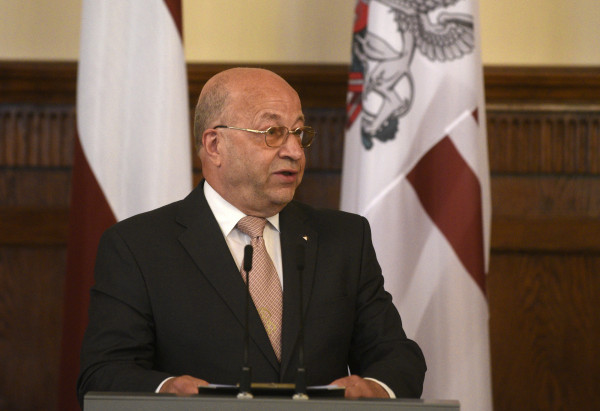LTA President Danusēvičs: Government works by the principle - the less invited experts, the better
Conversation with Henriks Danusēvičs, President of the Latvian Traders Association.
What are the consequences of trade restrictions imposed by the government?
This created an uneven influx of buyers, crowding. People feared that the sellers would not be able to serve them in time. It is not right for people to be 'squeezed in time'. There are also concerns about the near future, when 11 Christmas days will be compressed into three days. I’m afraid to even think what a mess and chaos will await us at shops.
The World Health Organization’s Special Envoy on Covid-19 emphasizes that precautionary measures must be balanced with economic issues. However, in Latvia the economy is being starved unjustifiably. There are trading companies that comply with all hygiene and distance requirements, but are not allowed to work. Trading companies have a relatively low incidence of illness compared to other industries, where people are forced to work indoors and it is not possible to keep a sufficient distance. There are only a few cases where Covid-19 has spread among sales staff. We work closely with the Central Laboratory and send people to testing as soon as we suspect it.
Were there any excesses on Friday, Saturday, Sunday?
It has been observed that 99.9% use masks. Exceptions may be cases where an individual is already intoxicated and does not understand where they are. But in general, incidents is almost non-existent - those who used to go crazy, shout and refused to wear masks have calmed down.
What was the turnover of trading companies over the weekend?
On Friday, turnover increased by 30-50%, on Saturday it fell by 50%, but on Sunday, according to traders, there was a "valley of sorrow".
Last week, the government was able to surprise us with particularly chaotic operations - the list of prohibited goods on holidays was changed and then changed again. People can no longer understand what is allowed, what is forbidden.

And officials still manage to define banned goods in a particularly bureaucratic way. In our understanding, hygiene products should have included all the products on the shelf, but there is a fact that, for example, shampoo can be sold, but hair dye or spray may not. Socks are not allowed. Shower gel is allowed, but body cream is not. There is also no hand cream, although it is currently a basic commodity, because if the disinfectant is used frequently, the skin of the hands becomes very dry.
We are already seeing a worsening treatment of sales staff - people tend to go to the store to vent their feelings - to curse at salespeople if something cannot be bought. Even though the sellers are not to blame.
The government should have said something more positive, encouraging, not can’t do this, can’t do that, sit at home! And when "Depression Radio" is turned on, all you can do is go crazy.
If there are no fuel briquettes at home, should I freeze for two days?
So it seems right now. Also on the banned list are candles and batteries...
So, if electricity goes out, people have to live in the dark?
That’s how it is.
If during the holiday someone runs out of vodka, then he’ll go to a neighbor who may have some. And it is unlikely that masks will be used there and the distance will be observed.
There is at least something with the ban on alcohol, but what was the point of banning the sale of tobacco? This is an assortment of grocery stores. One can somehow understand the logic that alcohol consumption can promote partying, but how can smoking contribute to that?
Isn't it the case that if you can't buy alcohol on holidays, you buy a bigger supply, which you then also drink faster? How can this be called a concern for people's health?
Unfortunately, this is the case, and this holiday has shown that people began to buy significantly more alcohol - not just to buy, but presumably also to use.
How to understand the fact that fuel can be bought at service stations but car oil, lamps and windshield washer fluids cannot?
It gets even crazier. The government had also banned antifreeze needed so that ambulances could drive. It could turn out that patients are dying, but the ambulance fleet is standing and waiting for Monday.
And how can the sale of goods necessary for driving safety be banned at all?
We have to wonder how the government's decisions are made - they could have invited a traffic expert who would immediately say what the risks are. But no - everything happens without consultations.
It now seems like on Friday night once again some decisions will be made that will take effect on Saturday.
President Egils Levits said that the direction of the government was right, but the style was not satisfactory. How to understand that?
Yes, the government works by the principle - the less invited experts, the better.
There is a situation where the health care system has proved to be poorly prepared for the crisis, so the government's work is not based on risk assessment, but on the implementation of measures.
